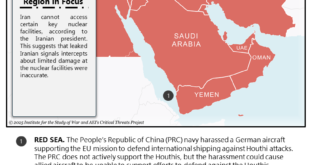 TEHRAN (FNA)- Iran said the Organization of Petroleum Exporting Countries could call for oil production cuts next week because of crude’s steep decline from record prices.
TEHRAN (FNA)- Iran said the Organization of Petroleum Exporting Countries could call for oil production cuts next week because of crude’s steep decline from record prices.
Oil prices have fallen nearly 25 per cent in less than two months to about US$113 a barrel today from a record $147.27 a barrel on July 11.
“In view of the drop in oil prices, there is this possibility that OPEC would approve an output cut in its upcoming meeting in Vienna,” Mohammad Ali Khatibi, the Iranian OPEC governor, told MNA. “The supply of oil is more than demand in the market. If OPEC is interested in removing the excess oil from the market, it must approve the output cut plan.”
Khatibi added that big oil consumers were hurting their economic interests by imposing sanctions on producers. “The enforcement of these sanctions will disrupt the production of oil and cause consuming countries to pay more for the oil they buy,” he said.
Although Khatibi did not mention any names, his comments were an unmistakable reference to the US-led sanctions that Western nations have imposed on Iran over the country’s civilian nuclear program.
The United States and its Western allies accuse Iran of trying to develop nuclear weapons under the cover of a civilian nuclear program, while they have never presented any corroborative document to substantiate their allegations. Iran denies the charges and insists that its nuclear program is for peaceful purposes only.
Tehran stresses that the country has always pursued a civilian path to provide power to the growing number of Iranian population, whose fossil fuel would eventually run dry.
Iran is under three rounds of UN Security Council sanctions for turning down West’s calls to give up its right of uranium enrichment, saying the demand is politically tainted and illogical.
Iran has so far ruled out halting or limiting its nuclear work in exchange for trade and other incentives, insisting that it should continue enriching uranium because it needs to provide fuel to a 300-megawatt light-water reactor it is building in the southwestern town of Darkhoveyn as well as its first nuclear power plant in the southern port city of Bushehr.
OPEC ministers are scheduled to meet in Vienna on Sep. 9 to review the organizations output policy. The group is also expected to hold an extraordinary meeting in Algeria in December.
Iranian officials blame sanctions that have been imposed against Tehran as a major contributory factor to the last year rise in prices.
Iran, OPEC’s second-biggest oil exporter and a co-founder of the organization in 1961, is pumping 4.23 million barrels per day (bpd) of crude, a record for the period since Iran’s Islamic Revolution in 1979, managing director of the National Iranian Oil Company (NIOC) Seifollah Jashnaz said.
On Sunday, the Iranian oil minister Gholam Hossein Nozari said $100 a barrel was the minimum oil price Iran would find acceptable.
OPEC members say that the market is well-supplied and that factors beyond their control, such as speculation, a weakening US dollar, inadequate refining capacity and geopolitical tensions were behind the drive in crude oil prices in the past few months.
Analysts view US-led sanctions against Iran and geopolitical factors as among the main causes of recent hike in oil prices, saying that fears of a new Middle East conflict are behind the new high for oil prices.
Market analysts, specially those from consumer nations, take Bush administration responsible for the price hikes during the last year, saying that these are frequent sanctions and the “rumors of US and Israeli action against Iran circulating in the markets” that affected oil and the dollar.
Prices dropped by around 20 dollars last month after West softened rhetoric in the dispute with Iran.
Oil prices in the past few weeks have remained remarkably stable in the face of a series of supply disruptions due to a fire in a major pipeline in Turkey, Russia’s subsequent invasion of Georgia, a strategic oil-transit country, and the damage to US oil installations from a major hurricane. This has led some analysts to suggest they could fall further, once supplies are restored – as they did early on Monday, declining nearly $3 a barrel as the hurricane threat lessened.
The main factor driving crude downwards has been falling demand for refined petroleum products in the US and Europe in response to high prices and weakening economic conditions. Recently, there have been signs that the previously robust oil demand growth shown by large Asian economies such as China’s could be slowing.
For example, stockpiles of jet fuel have been building in the Far East as consumers have cut back on air travel after the Beijing Olympic Games.
But if oil prices do resume their previous downwards course, OPEC may not have to cut its members’ formal oil production quotas to tighten crude supplies. Several OPEC countries, most notably Saudi Arabia, have been pumping above their quotas in recent months in response to the earlier calls from oil consumers to increase production. If oil prices do not fall too rapidly, a return to the strict observance of quotas by OPEC members could stabilize them.
During a visit to Tehran last month, the OPEC president Chakib Khelil called for OPEC members, except Iraq and Angola, to abide by their quotas.
 Eurasia Press & News
Eurasia Press & News


